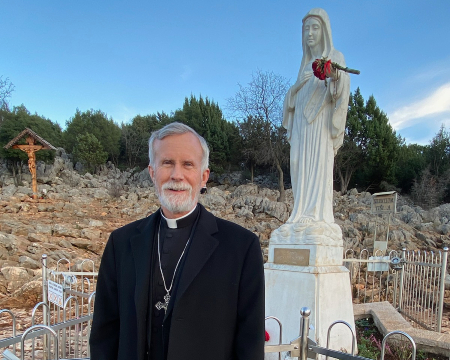 Hi readers, it seems you use Catholic Online a lot; that's great! It's a little awkward to ask, but we need your help. If you have already donated, we sincerely thank you. We're not salespeople, but we depend on donations averaging $14.76 and fewer than 1% of readers give. If you donate just $5.00, the price of your coffee, Catholic Online School could keep thriving. Thank you. Help Now >
Hi readers, it seems you use Catholic Online a lot; that's great! It's a little awkward to ask, but we need your help. If you have already donated, we sincerely thank you. We're not salespeople, but we depend on donations averaging $14.76 and fewer than 1% of readers give. If you donate just $5.00, the price of your coffee, Catholic Online School could keep thriving. Thank you. Help Now >
William of Malmesbury
FREE Catholic Classes
Born 30 November, about 1090; died about 1143. He was educated at Malmesbury, where he became a monk. From his youth he showed a special bent towards history, "Thence it came that not being satisfied with the writing of old I began to write myself". By 1125 he had completed his two works, "Gesta Regum" and "Gesta Pontificum". After this he spent ten years in forming a collection of historical and legal materials, now in the Bodleian library, and writing a history of Glastonbury and its saints, in which he speaks as though he were, for the time at least, an inmate of that abbey. He records that he might more than once have become Abbot of Malmesbury, but he contented himself with the office of librarian. About 1140 he made revisions of the two works "Gesta Regum" and "Gesta Pontificum", and began a new work "Historia novella", a sequel to the former, dealing with the period 1125-42, but in such a desultory way as to show that we have rather the first draft of a book than a completed work. William's authority as a historian is invaluable for the contemporary reign of Stephen, and his records of the earlier Norman kings, being based either on personal knowledge or direct hearsay, are of importance. The "Gesta Pontificum", which owes much to Bede, is the source from which all later writers of early ecclesiastical history of England have chiefly drawn. His method, also derived from Bede, was to recount events so as to show their cause and effect, and in returning to this sound principle he made a great advance on the works of his predecessors. The anecdotes, occasionally irrelevant, which he weaves into his narrative, helped much to preserve its popularity through the Middle Ages. His chief works have been printed by Migne, but the Rolls Series includes the critical edition.
 Hi readers, it seems you use Catholic Online a lot; that's great! It's a little awkward to ask, but we need your help. If you have already donated, we sincerely thank you. We're not salespeople, but we depend on donations averaging $14.76 and fewer than 1% of readers give. If you donate just $5.00, the price of your coffee, Catholic Online School could keep thriving. Thank you. Help Now >
Hi readers, it seems you use Catholic Online a lot; that's great! It's a little awkward to ask, but we need your help. If you have already donated, we sincerely thank you. We're not salespeople, but we depend on donations averaging $14.76 and fewer than 1% of readers give. If you donate just $5.00, the price of your coffee, Catholic Online School could keep thriving. Thank you. Help Now >








 Daily Readings for Saturday, April 20, 2024
Daily Readings for Saturday, April 20, 2024 St. Marian: Saint of the Day for Saturday, April 20, 2024
St. Marian: Saint of the Day for Saturday, April 20, 2024 Children's Prayer For Parents: Prayer of the Day for Saturday, April 20, 2024
Children's Prayer For Parents: Prayer of the Day for Saturday, April 20, 2024

